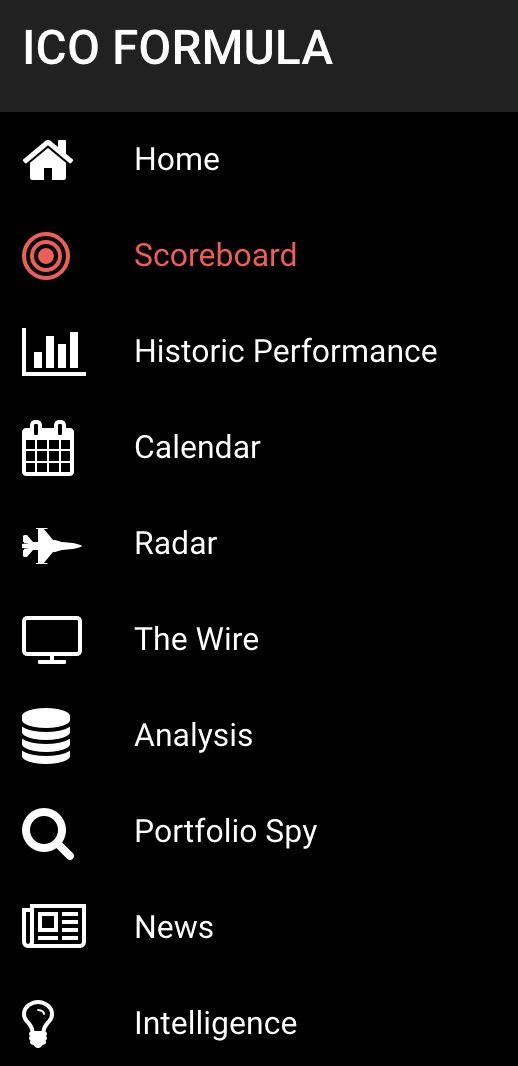The burgeoning ICO industry has spawned a lucrative business for tracker sites that monitor and review the latest projects. Not only do these sites earn lucrative sums for their featured reviews, but the largest have the power to make or break ICOs. Tracker websites have become the unofficial gatekeepers of crowdsales.
Also read: Joystream Test Drive — How To Get Paid Bitcoin Seeding Bittorrent Files
ICO Trackers Are Growing Stronger Every Day
Safe Haven is an ICO addressing the problem of digital inheritance. The project is seeking to devise a means of passing on private keys to relatives so they can access your crypto wealth when you’re gone. Halfway down the Safe Haven homepage, three logos are displayed prominently, prefaced by the words “As seen in”: ICO Daily, ICO List, and Coin Schedule. It’s the same story with Nauticus, an Australian crypto exchange launching in mid-2018, also via an ICO. It proudly displays the ICO sites it’s featured on and their corresponding ratings out of five: Wiser ICO (4.5), ICO Marks (4.45), ICObench (4.7) and Trudex (4.15).
12 months ago, many of these review sites didn’t exist. The proliferation of ICOs has resulted in an avalanche of crowdsales too numerous for any one person to review. Enter the ICO review site, which does all the hard work so you can tell at a glance which projects have merit and which are best avoided. These sites can be regarded a net good with the potential to cut through the noise and zero in on the best projects. With great power comes great responsibility, and as the leading sites strengthen their grip on the market, they’re torn between trying to fairly review projects while at the same time appeasing the ICOs that have paid for the privilege.

If Coinmarketcap Did Crowdsales

When Coinmarketcap (CMC) started out five years ago, it was a simple cryptocurrency tracker which monitored the price of what few altcoins there were at the time. As the number of coins grew, so did the role that CMC played in promoting them, to the extent where new ICOs began listing Coinmarketcap inclusion as one of the first tasks on their roadmap. The same trend has since occurred with ICO ratings site, whose logos can now be found plastered across the majority of crowdsale websites.
The tools these sites provide are undoubtedly valuable, enabling investors to dive deep without getting their hands dirty. The likes of ICO Formula, Coinschedule, Coin Magnet, and Tokendata provide an array of tools for assessing crowdsales based on their sector, blockchain, sale type, location, and many more metrics. Then there’s ICOclock, which simply shows a single column of ICOs that are ending soon, a sort of last chance saloon for anyone with ether to burn. Some, such as ICO Drops, promise to list and review ICOs for free. Others, such as ICObench, offer free listings or charge 0.05 BTC for a featured review, and a couple charge 2 BTC or more for a full review.
Who’s Responsible When an ICO Exit Scams?
 Some ICO trackers, as part of their paid service, will perform KYC on the operators of the ICOs themselves, checking passports and documentation to ensure they’re who they purport to be. This is a valuable service which can benefit investors, who have no desire to get duped by another fake project made up of Ryan Goslings. But on the rare occasion when an ICO pulls an exit scam, despite receiving the all-clear from review sites, it presents a quandary. When Benebit did that in January, making off with $2.7m in funds, the ICO review sites quickly pulled their favorable profiles of the project and claimed they’d been duped.
Some ICO trackers, as part of their paid service, will perform KYC on the operators of the ICOs themselves, checking passports and documentation to ensure they’re who they purport to be. This is a valuable service which can benefit investors, who have no desire to get duped by another fake project made up of Ryan Goslings. But on the rare occasion when an ICO pulls an exit scam, despite receiving the all-clear from review sites, it presents a quandary. When Benebit did that in January, making off with $2.7m in funds, the ICO review sites quickly pulled their favorable profiles of the project and claimed they’d been duped.
Overcentralization is a problem that affects every sphere of life, and the crypto sector is no different. Cryptocurrencies are meant to promote decentralization, and to steer people away from data-leaking siloes such as Facebook. But it’s human nature to flock to the places where everyone else is hanging out, which is how sites like Coinbase and Coinmarketcap become so influential.
The rise of ICO tracking websites was inevitable, and despite their imperfections, they do a good job of appraising new projects. Anyone investing serious money in an ICO should recognize that there’s no substitute for doing your own research. Reading white papers and scanning Linkedin profiles takes time. But when you’re staking thousands of dollars on the performance of these people, it’s time well spent.
Do you think ICO review sites can be relied upon to be impartial? Let us know in the comments section below.
Images courtesy of Shutterstock.
Need to calculate your bitcoin holdings? Check our tools section.
The post ICO Trackers Are the New Gatekeepers of Crowdsales appeared first on Bitcoin News.
Powered by WPeMatico
